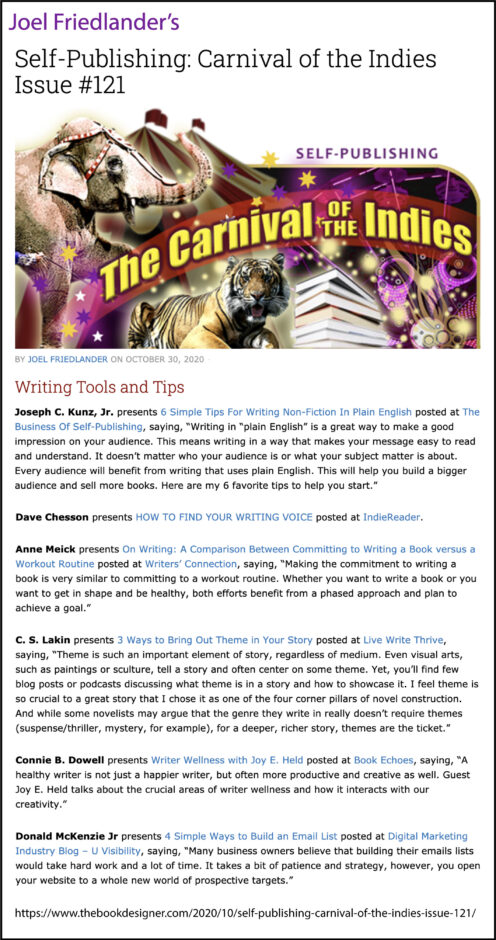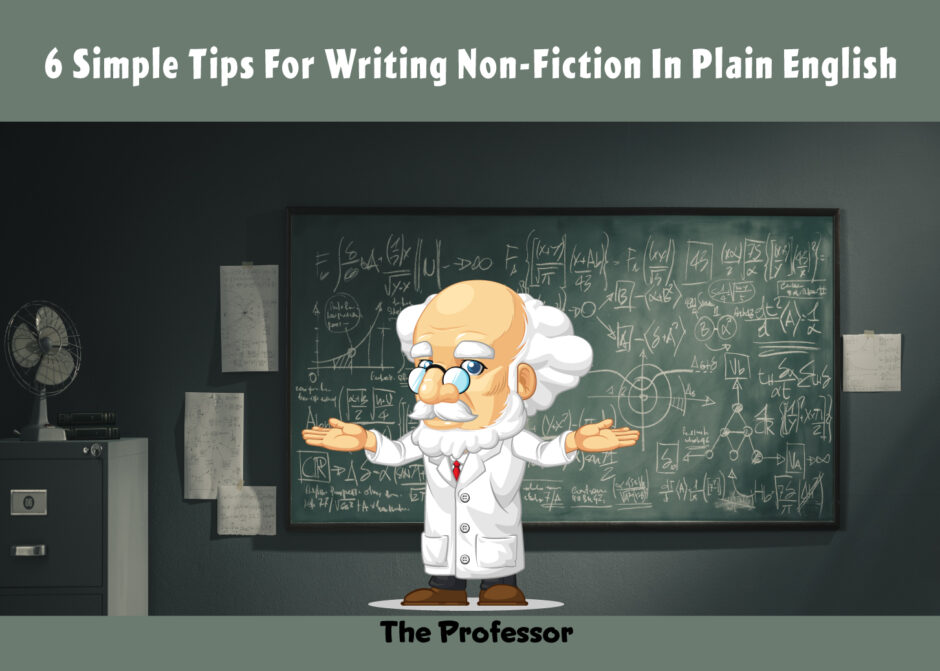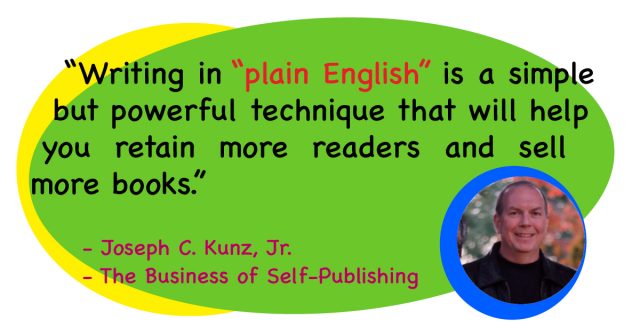Podcast: Play in new window | Download
Subscribe: Apple Podcasts | Spotify | Pandora | RSS | More
Updated February 22. 2024
Subtitle
A powerful writing technique that will help you build a bigger audience and sell more books
Synopsis
Writing in “plain English” is a great way to make a good impression on your audience. This technique means writing in a way that makes your message easy to read and understand. It doesn’t matter who your audience or subject matter is. Every audience will benefit from writing that uses plain English. This technique will also help you build a bigger audience and sell more books. Here are my six favorite tips to assist you.

What You Will Learn
1. You will learn how to simplify your non-fiction writing to make it easier to understand and remember.
2. You will learn how and why writing in plain English can help you build and retain a broader readership and following.
3. You will learn how and why writing in plain English will make you look more intelligent and your writing more powerful.
Introduction
Writing in “plain English” is a great way to make a good impression on your audience. This technique means writing in a way that makes your message easy to read and understand. It doesn’t matter who your audience is or what your subject matter is about. Every audience will benefit from writing that uses plain English.
And it certainly doesn’t mean talking down to your audience or using baby words. It means writing in a way that gets your message to your intended audience respectfully and appropriately. Your readers will sense this and respect you for it. This behavior and attitude is how you build an audience for your work.

Here Are My Six Favorite Tips to Help You Start Writing in Plain English:
Tip # 1. Write for Your Audience, Not for You
In other words, put your reader first. Always. Writing non-fiction is about providing value to the reader and helping them solve their problems. Their needs come first, not yours. You must speak directly to the reader. You do this by using only appropriate words and concepts for your audience. If you’re writing to show off your smartness, you’ll lose them immediately – and they won’t return.
Tip # 2. Avoid Big and Fancy Words
This technique doesn’t mean you must use simple words. It immplies that you must use words that are appropriate for your audience. No matter who your audience is or what the subject matter is, you’ll look foolish and insecure if you use big, fancy, ornate words. Using these kinds of words is the fastest way to lose your readers. Don’t use them if you sincerely want to help people and be taken seriously as a writer.

Tip # 3. Avoid Slang, Jargon, Abbreviations, and Clichés
These types of phrases typically don’t help your reader. If, for some reason, you need to use one, you must explain what the term means. Don’t ever assume the reader will know what you’re talking about. It would be unfair and disrespectful of your readers, and they’ll sense that. And you’ll have wasted their time.
Tip # 4. Write Short and Clear Sentences
Shorter sentences go a long way to making your writing more comfortable to read and understand. Long sentences tend to be confusing and tiring to read. Writing shorter sentences forces you to cut out all the unnecessary words. Try to keep your sentences under 20 words.
Tip # 5. Use Contractions
Yes, contractions. Such as: “can not” becomes “can’t;” and “will not” becomes “won’t.” They help you sound natural, not like a robot. Not like an insecure “intellectual” trying to impress the reader. But as someone the reader can identify with and believe. Like you’re talking to the reader face-to-face. This technique goes a long way to getting a reader to stay with you. Don’t be afraid to use them. Your readers will appreciate it.
Tip # 6. Read It Aloud before Publishing
This tip is essential if you ever hope your writing to sound natural. Readers want you to talk to them, not at them. You need to sound like a natural person. One that genuinely wants to help the reader find solutions to their questions and problems.
Reading what you’ve written out loud will force you to hear how you’ll sound to the reader. It’ll help you hear what sentences are too long, such as when you need to take a breath just to finish a sentence. You’ll hear which sentences are too awkward or hard to follow. You’ll be amazed at how much your writing will improve when you read it out loud.

Conclusion
Remember, your job as a non-fiction writer is to communicate clearly and concisely with your audience. Powerful writing is lean and straightforward. It’s easy to read and understand. First and foremost, you’re writing to help your readers. Writing in plain English will help your reader benefit from your message. And you will build a bigger audience and sell more books.
Questions to Think About
1. What are your favorite tips about making your writing more comfortable to read?
2. What other “plain English” writing tips are essential?

